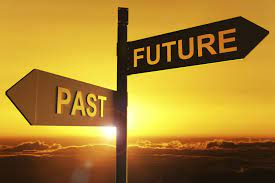 Imagine having the ability to see the future. You could potentially know what decisions to make in your present in order to achieve the outcomes you desire. You could also be prepared for potential dangers or challenges that may come your way. On the other hand, having the ability to change the past could potentially alter the present and future in ways that may not be predictable or desirable.
Imagine having the ability to see the future. You could potentially know what decisions to make in your present in order to achieve the outcomes you desire. You could also be prepared for potential dangers or challenges that may come your way. On the other hand, having the ability to change the past could potentially alter the present and future in ways that may not be predictable or desirable.
One argument for having the ability to see the future is that it could allow you to make more informed and strategic decisions. For example, if you knew that a certain investment would not pan out in the long run, you could choose to avoid it and instead invest your resources elsewhere. Similarly, if you knew that a certain career path would not lead to the success or satisfaction you desire, you could choose to pivot and explore other options. Knowing the future could also help you to better plan for your personal and professional goals, allowing you to make the most of your time and resources.
Additionally, the ability to see the future could potentially help you avoid danger or negative outcomes. For example, if you knew that a natural disaster was going to occur in a certain location, you could choose to evacuate or take other precautions to protect yourself and your loved ones. Similarly, if you knew that a certain person or situation was going to cause harm or conflict, you could choose to distance yourself or seek help. In this way, the ability to see the future could potentially save lives and prevent suffering.
On the other hand, changing the past could have unintended consequences in the present and future. For example, if you changed a past event that seemed insignificant at the time, it could have a domino effect and drastically alter the course of your life and the lives of those around you. This could potentially lead to unforeseen and potentially undesirable outcomes, such as losing relationships or opportunities that are important to you. Additionally, changing the past could potentially erase the experiences and lessons you have learned up to this point, which could negatively impact your personal growth and development.
Furthermore, the concept of changing the past raises ethical and moral questions. For example, if you changed a past event that had negative consequences, you may be interfering with the free will and agency of others. This could potentially lead to a slippery slope, where individuals or groups seek to manipulate the past for their own gain or to impose their beliefs or values on others.
Ultimately, the ability to see the future may be more desirable, as it allows you to make informed decisions and be prepared for potential challenges without the risk of unintended consequences. However, it’s important to note that the ability to see the future does not necessarily guarantee success or control over all outcomes, as there are still many factors that are beyond our control.
In conclusion, while both the ability to see the future and change the past have their pros and cons, I would rather have the ability to see the future. This would allow me to make more informed and strategic decisions and be prepared for potential challenges, without the risk of unintended consequences or ethical concerns that could come with changing the past. Of course, with any ability or power comes responsibility, and it would be important to use the ability to see the future wisely and with consideration for the well-being of oneself and others.

The Past or The Future?
(Visited 7 times, 1 visits today)
